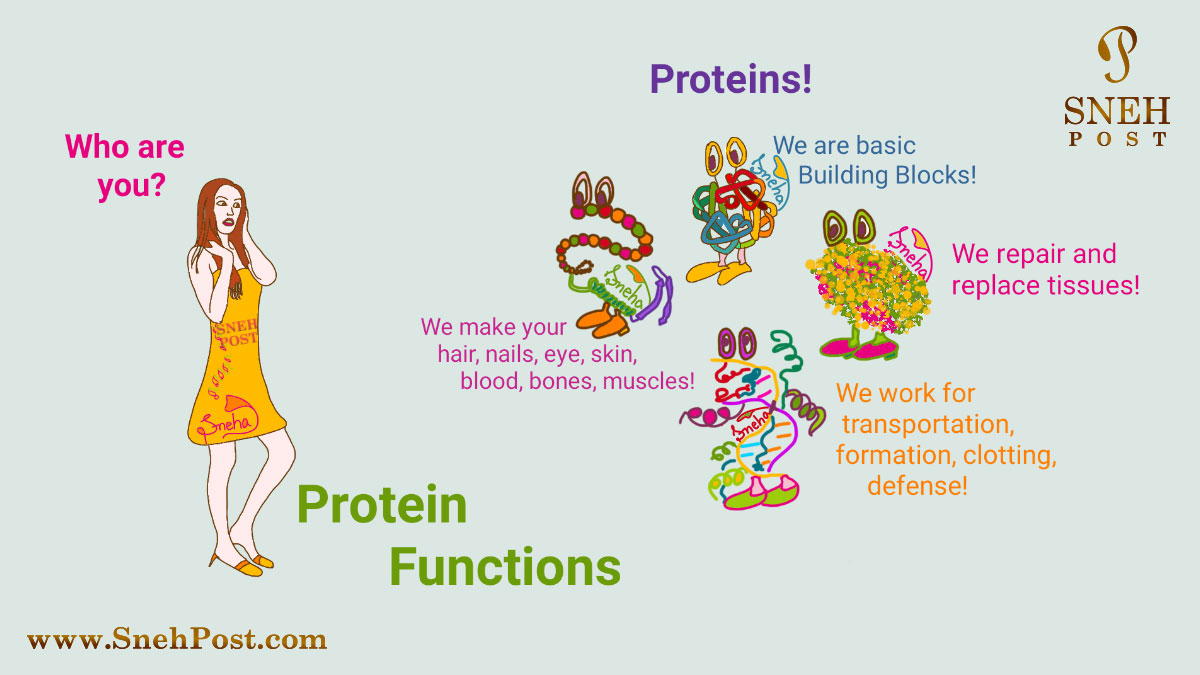Proteins, the building blocks of life, fulfill an array of critical functions within our bodies, from facilitating chemical reactions to providing structural support. Yet, there are certain roles that proteins do not encompass.

Image: fity.club
What Proteins Do Not Do
Energy Storage
Unlike carbohydrates and fats, proteins do not serve as primary energy sources. Their primary role lies in facilitating biological processes rather than providing sustained energy.
Vitamin Synthesis
Proteins lack the enzymatic capabilities to synthesize vitamins. Vitamins are organic compounds that must be obtained from external sources, such as food or supplements.

Image: openoregon.pressbooks.pub
The World of Proteins
Definition and Structure
Proteins are complex molecules composed of amino acids linked together in specific sequences. Their structure determines their unique properties and functions.
History and Meaning
The concept of proteins dates back to the early 19th century. The term “protein” originated from the Greek word “proteios,” meaning “primary or foremost,” highlighting their crucial role in biological systems.
Functions of Proteins
Proteins exhibit a vast range of functions, including:
- Catalyzing chemical reactions (enzymes)
- Providing structural support (collagen)
- Facilitating cell signaling (hormones)
- Transporting substances across membranes (pumps)
- Regulating gene expression (transcription factors)
Latest Trends in Protein Research
Recent advances in protein research have focused on:
- Precision medicine: Identifying protein targets for personalized treatments
- Protein folding prediction: Unraveling the complexities of protein structure
- Proteomics: Exploring the vast repertoire of proteins in cells and organisms
Expert Advice on Proteins
To optimize protein intake and function:
- Consume a balanced diet rich in protein sources
- Consider protein supplements if dietary intake is insufficient
Tips for Maximizing Protein Potential
Incorporating these tips can help enhance the effectiveness of proteins in the body:
- Choose lean protein sources to limit fat and cholesterol intake
- Combine protein with carbohydrates and healthy fats to balance meals
FAQ on Proteins
Q: Do proteins contain carbohydrates?
A: No, proteins do not contain carbohydrates.
Q: Can proteins be stored for later use?
A: Proteins cannot be stored in a significant form for later use, unlike carbohydrates and fats.
What Is Not A Function Of Proteins
https://youtube.com/watch?v=zFkgQr91bA0
Conclusion
Understanding the functions of proteins and their exceptions provides a deeper appreciation for their multifaceted nature. While they excel in facilitating biological processes, their absence in energy storage and vitamin synthesis highlights the intricate interplay of various molecules in the human body.
If you found this discussion on proteins engaging, feel free to explore additional resources to delve further into this fascinating topic.